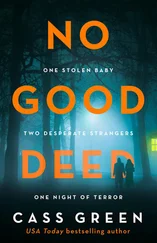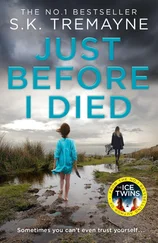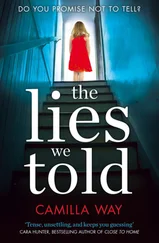Still, this was no victory over her mind—the mind that controlled her body, and sometimes seemed intent on destroying it.
The contemplation was interrupted by her phone ringing on the nightstand.
Her body ached as she reached for it beside the empty glass. She didn’t recognize the number.
“This is Abby.” She sat up and tugged on a twisted sheet to cover her body.
“Hey, kiddo—it’s Leo.”
“Leo?” She sat up straighter. Pulled the sheet higher. Only one person called her “kiddo” at age thirty-two, and that was Special Agent Leo Strauss. They hadn’t worked together for over a year. Not since he’d transferred to New York to be closer to his grandchildren. Still, his voice reached into her very core. He had been like family.
“Listen. Just listen,” he said. “I know it’s been a while.”
“What’s going on?” Abby’s face drew tight.
“Cassandra Tanner came home.”
Abby was on her feet, searching for clean clothes. “When?”
“Half an hour, maybe less. Showed up this morning.”
Phone pressed between shoulder and ear, Abby pulled on a shirt, then jeans. “Where?”
“The Martin house.”
“She went to her mother?”
“She did, not sure what that means . . .”
“Emma?”
“She was alone.”
Abby buttoned her shirt, stumbled to the bathroom. She felt the surge of adrenaline, her knees buckling. “I’m heading to the car . . . Christ . . .”
A long silence made her stop. She took the phone in her hand, braced herself on the bathroom sink.
“Leo?”
Abby had not forgotten the Tanner sisters. Not for one minute of one day. The facts of the investigation into their disappearance had lain dormant in the shadowed corners of her mind. But that was not the same as forgetting. They were with her, even after a year of being off the case. They were in her bones. In her flesh. She breathed them in and out with every breath. The missing girls. And the theory of the case that no one else would believe. One call and the dam was broken. All of it was flooding in, sweeping her off her feet.
“Leo? You still there?”
“I’m here.”
“They pulled you in from New York?”
“Yeah. You’ll get a call from New Haven with the assignment. I wanted to make sure you were okay with it first.”
Abby looked up into the mirror as she considered what to say. Things had not ended well when the case got cold.
“I’m working this case, Leo. . . .”
“Okay . . . I just didn’t know where you were at. They said you had some counseling. . . .”
Shit. Abby hung her head. It was still there, the anger or maybe frustration, or disappointment. Whatever it was, she could feel it stirred by the concern in his voice.
The Bureau had offered her counseling and she had taken it. “It’s normal to feel this way,” they told her. Yes, Abby had thought at the time. She knew it was normal. Some cases get under the skin.
Everyone agreed this case had been maddening. No one knew what to call it at the time. Murder, kidnapping, accident. They’d had an eye on the disappearance from the runaway angle as well—sexual predators, terrorist recruiters, Internet stalkers. Everything was in play. The car at the beach, the shoes of just one of the sisters left by the shore. They’d found nothing to suggest the younger one had been with her except Cass’s hair—which could have been left there on any number of occasions. There was nothing to suggest they had planned to run away together. And nothing to suggest foul play, either murder or abduction, of either one. There were no bodies, no suspects, no motives, no strangers on their social media sites or phone logs or text messages or e-mails. Nothing obvious had changed in recent years. The truth is, they might as well have brought in NASA and called it an alien abduction.
But this was not the reason Abby had seen the shrink. She had been doing this work since she finished her PhD nearly eight years ago. There had been other difficult cases. She could see them all when she summoned them. The brutal beating of a prostitute. The execution of a neighborhood drug dealer. The hanging of a dog on the branch of a tree. The list went on and on—cases that were never solved, or never prosecuted, the victims’ families, and sometimes the survivors, left choking on the injustice.
There had been relief in talking to another professional. Though Abby had never been a practicing therapist—“I don’t have the patience for patients,” she used to joke—that did not mean she wasn’t a believer. Talking could bring perspective. Talking could dull the edges of the blade. But even after a year of talking and talking, the endless talking, the Tanner investigation remained with her. That it cut less deep did not help wrestle the demons it summoned in the dark of night.
And now her sessions with the shrink were coming back to bite her.
“I’m working the case, Leo. . . .”
“Okay, okay . . .”
“What do we know? Has she said anything? . . .”
Abby heard a short sigh as she turned away from the mirror and headed back into the bedroom to find her shoes.
“Nothing, kiddo. She took a shower. Had some food. Now she’s resting until we can get there.”
“A shower? How did that happen?”
“It was her mother. She wasn’t thinking. She almost started the wash—”
“With Cass’s clothes? Before forensics? Christ!”
“I know . . . just get moving. Call me from the car.”
The phone went quiet again, but this time he was gone.
Shit! Heart racing now, she pulled on a pair of boots, called out to the dog, who followed her through the small ranch house to the kitchen. She poured some food into a bowl. Rubbed his neck. Opened the back door so he could go out.
“Keys, keys . . .” she said out loud, back in the living room, searching. She was frantic to get to the door. To get to her car. To get to Cassandra Tanner.
Her head felt light, her vision starting to blur. Chronic sleep deprivation had its side effects. She stopped and braced herself on the back of a chair.
No one had believed her theory three years ago, not even Leo, and he had been like a father to her. It was one thing to have a cold case. It was another thing to leave stones unturned.
The company shrink listened, but she did not hear. She said things like “I can understand how you feel that way.” Classic feeling validation. They taught that in undergraduate psych classes. She would ask what had not been done. She would let Abby ramble on and on about the family, the mother, Judy Martin, the divorce, the new father, Jonathan Martin. And the stepbrother, Hunter. Together, they had deconstructed every piece of the investigation and in a way that was meant to lead Abby to a place of comfort.
The shrink—“You did everything you could.”
Abby could still hear the conviction in her voice. She could see the sincerity on her face, even now as Abby closed her eyes to stop the spinning in her head. She took a long breath and exhaled hard, her hand clenched on the wood back of the chair.
Their analysis of the investigation had become Abby’s Bible, the verses giving her rambling, desperate thoughts a path to salvation.
Verse number one. The normalcy reported by the outsiders—friends, teachers, the school counselor. Cass envied her older sister. Emma was annoyed by Cass. Cass was quiet but determined. Emma was more free-spirited. Some used the word “undisciplined.” But she had been looking at colleges, filling out applications. Everything indicated that she was just biding her time until she could get out of that house.
The shrink—“All of that sounds pretty normal, Abby. They were on time for school. A very prestigious private school. The Soundview Academy. They spent summers at expensive camps, some in Europe. They did sports. Had friends . . .”
Читать дальше












